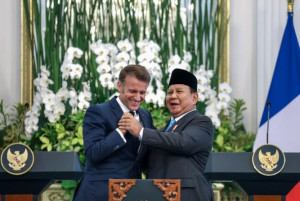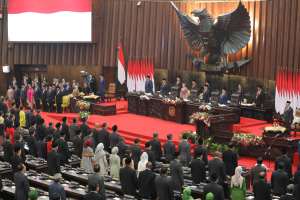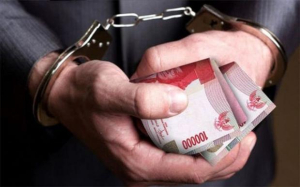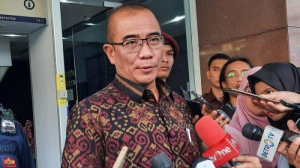Indonesia's Supreme Court orders Election Commission to revoke articles allowing ex-corrupt convicts to register as legislative candidates
The Indonesian Supreme Court has instructed the Election Commission (KPU) to revoke two articles that made it easier for former convicts of corruption cases to run as legislative candidates.
These two articles are Article 11 Paragraph 6 of Regulation No. 10 of 2023 and Article 18 Paragraph 2 of Regulation No. 11 of 2023 issued by the KPU.
These two articles were challenged by the Indonesia Corruption Watch (ICW), the Association for Elections and Democracy (Perludem), and two former leaders of the Corruption Eradication Commission (KPK), Saut Situmorang and Abraham Samad.
Their argument was that these rules had the potential to open the door for ex-corruptors who wanted to run as legislative candidates without waiting for the mandatory five-year waiting period.
In its ruling, the Supreme Court stated that Article 11 Paragraph 6 of Regulation No. 10 of 2023 was inconsistent with higher-ranking legislation, namely Article 240 Paragraph 1 Letter G of the Election Law (Undang-Undang Pemilu) in conjunction with Constitutional Court Decision No. 87/PUU-XX/2022.
Similarly, Article 18 Paragraph 2 of Regulation No. 11 of 2023 was deemed inconsistent with Article 182 Letter G of the Election Law in conjunction with Constitutional Court Decision No. 12/PUU-XXI/2022.
Both articles emphasized a five-year waiting period for individuals convicted of corruption cases after serving their sentences before they could run as legislative candidates.
According to the Supreme Court, the five-year waiting period is necessary for these convicts to engage in self-reflection and readjust to society. On the other hand, the public is given ample time to make critical and clear assessments.
However, both articles in the KPU regulations effectively nullified this waiting period. According to the Supreme Court, the additional punishment of revoking political rights serves as an added deterrent, so the KPU should have established stricter requirements, considering that corruption is an extraordinary crime.
Another note from the ruling is that the Supreme Court declared these two articles to be legally non-binding and not applicable universally because they were inconsistent with higher-ranking laws.
The Corruption Eradication Commission (KPK) has praised the Supreme Court's decision to approve the judicial review of these regulations, allowing ex-corrupt convicts to participate in legislative candidate elections more quickly.
Ali Fikri, KPK spokesperson stated that the decision aligns with the anti-corruption spirit and is expected to have a deterrent effect.
According to Ali, in some corruption cases handled by the KPK, perpetrators were subjected to additional penalties, such as the revocation of their political rights, including the right to vote or be elected.
This is a form of risk mitigation concerning political decisions made by former corruption convicts. Ali also commended ICW for challenging the presence of these two controversial articles.
"Punishment for corruptors must be serious because the hope is that the perpetrators or the public will become deterred or afraid to commit corruption," he said on September 30, 2023.
Already have an account? Sign In
-
Start reading
Freemium
-
Monthly Subscription
20% OFF$29.75
$37.19/MonthCancel anytime
This offer is open to all new subscribers!
Subscribe now -
Yearly Subscription
33% OFF$228.13
$340.5/YearCancel anytime
This offer is open to all new subscribers!
Subscribe now







